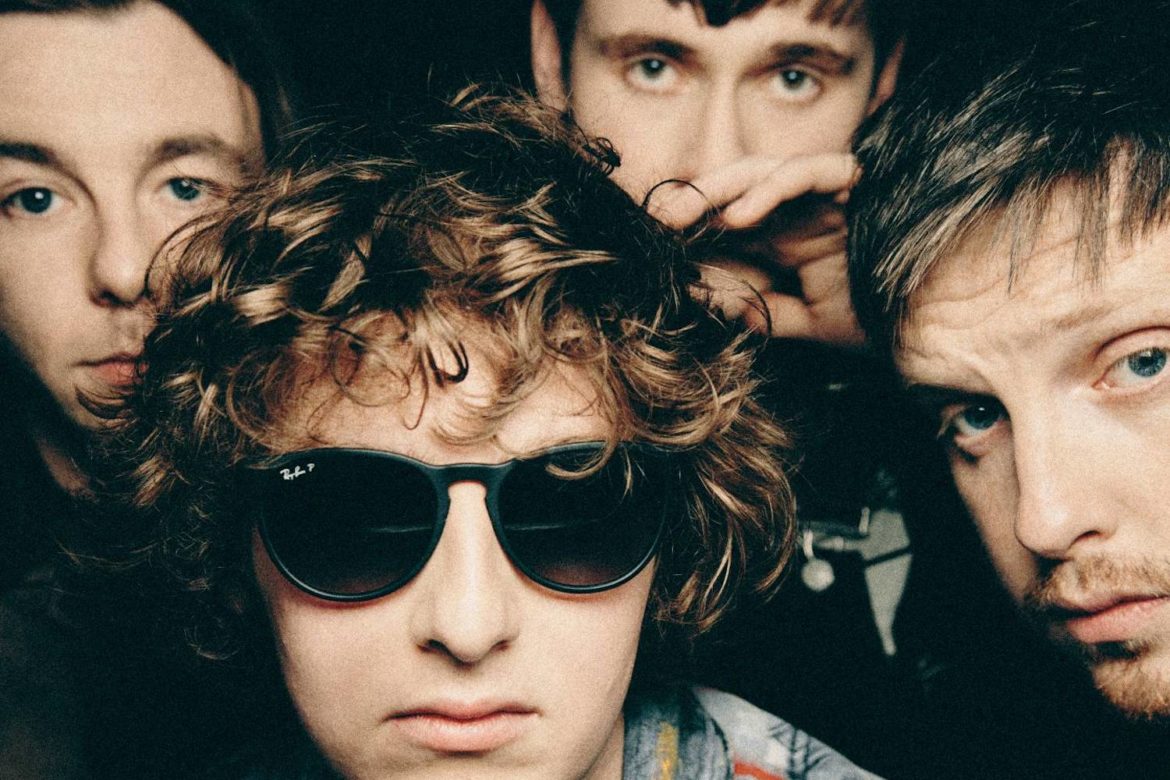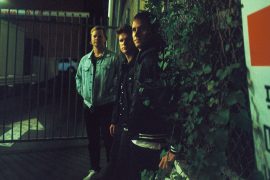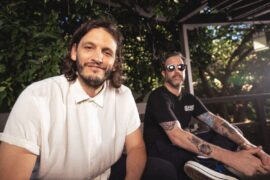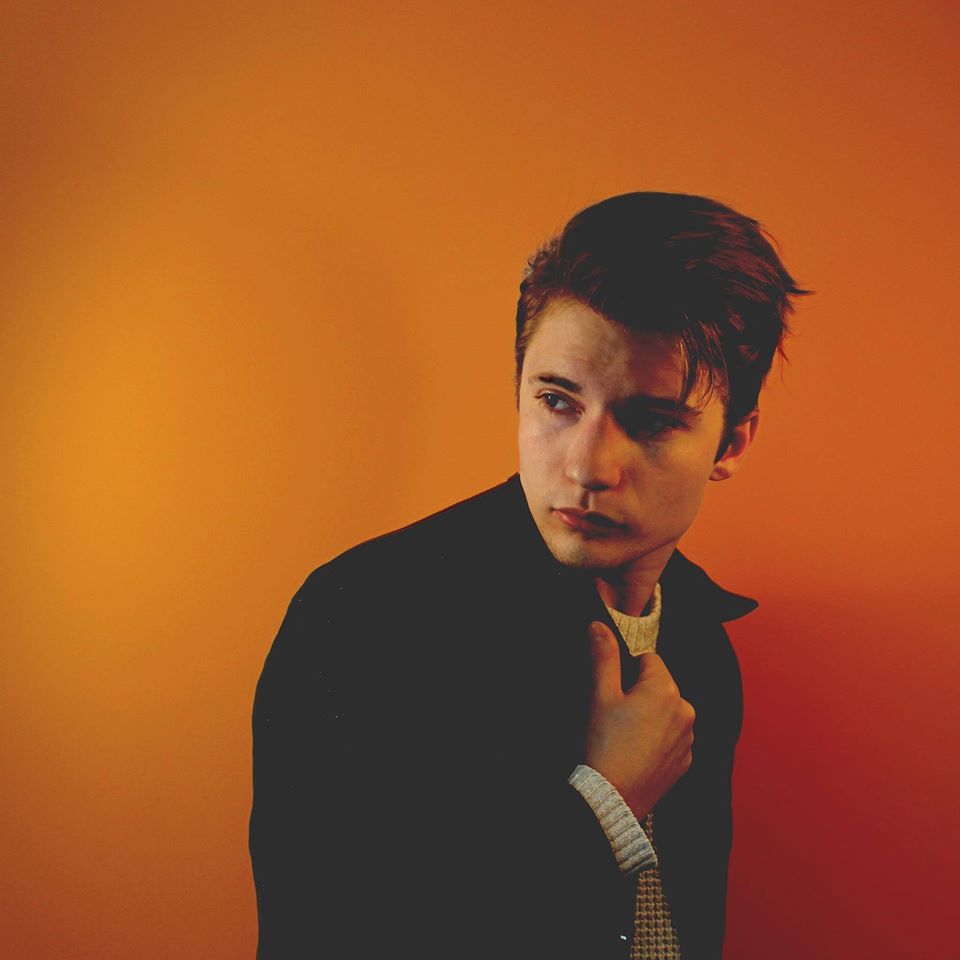Scottish-born six-stringer Joe McGillveray of The Snuts has taken the indie world by storm with an eclectic mix of styles and kaleidoscopic aesthetics en route to smashing success. In our intimate interview, he discusses the band’s beginnings and their meteoric rise, five records that shaped his sound, and the songs and stories behind The Snuts’ newly released sophomore album, ‘Burn the Empire.’
Stream: ‘Burn the Empire’ – The Snuts
One might think that the members of The Snuts have big heads in the wake of the unexpected of their 2021 debut album W.L.,
which went to No. 1 on both the U.K. and Scottish singles charts. But no, it seems that Joe McGillveray and his cohorts – Jack Cochrane (vocals), Callum Wilson (bass), and Jordan Mackay (drums) – are as grounded as ever.
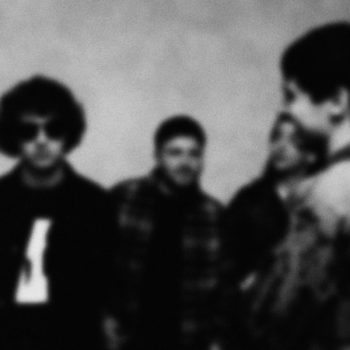
As for McGillveray, while the band was milling away, crafting its follow-up, 2022’s Burn the Empire, the young guitarist has continued his tasty habit of harkening back to an era where less is more. Cutting to the chase, to say The Snut’s second effort is dazzling would be an understatement. Bucking the dreaded sophomore slump, The Snuts are now nipping at the heels of established veterans, officially ushering in a new wave of supercharged indie rock in the U.K.
In the wake of unmitigated success, Joe McGillveray logged on with Atwood Magazine to recount his origins in music, the formation of The Snuts, the skinny on Burn the Empire, and what the group needs to do to keep its forward momentum.
We make music for each other and for the people we care about, and that’s all we know how to do. I just feel lucky to be in the position we’re in and hope to be able to keep making music that people enjoy.
— —
:: stream/purchase Burn the Empire here ::
Stream: “The Rodeo” – The Snuts
A CONVERSATION WITH THE SNUTS
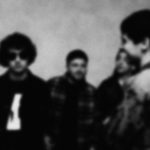
Atwood Magazine: What first sparked your interest in the guitar?
Joe McGillveray: I grew up in a pretty musical household. There was always music on in the kitchen or the car when I was growing up. My mum was into the Beatles and Rolling Stones, and my dad was weirder stuff like Frank Zappa and Mott the Hoople, so there were some proper guitar heroes floating about in my house.
Can you recall your first guitar?
Joe McGillveray: My first guitar was a cheap Strat copy that my older brother had kind of discarded. I got it restrung at the violin shop in town, but the guy stuck a G string where the D should be. I think I played it like that for a year before anyone pointed out what was wrong. It’s actually amazing. I stuck with it with how badly it must have sounded, and amazing that my parents could keep a straight face when I played them terrible tuneless Oasis covers.
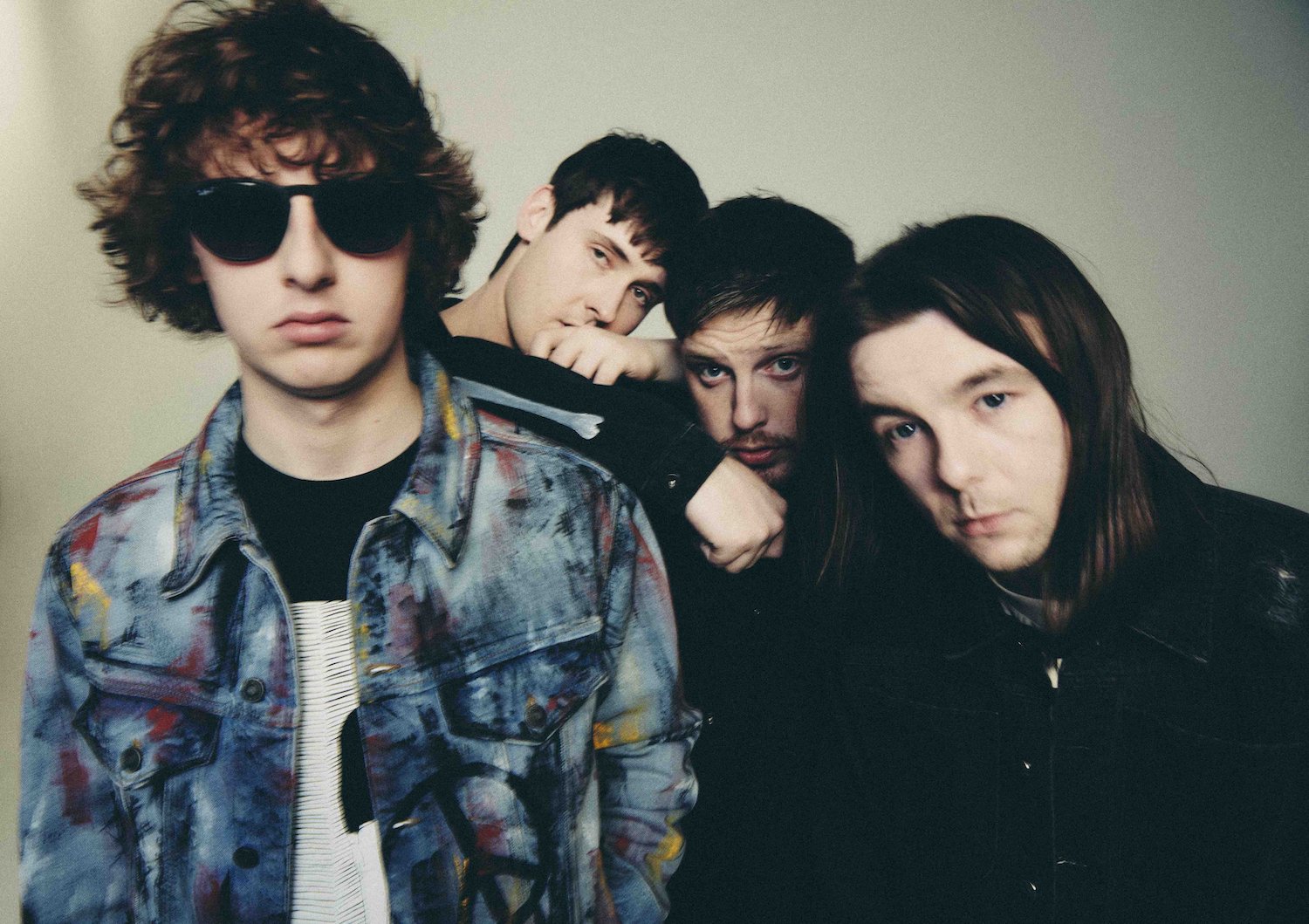
Growing up in Scotland, describe the scene you were exposed to and how that shaped your outlook as a songwriter and guitarist.
Joe McGillveray: We grew up in a place called Whitburn. The people are lovely, but it could feel pretty bleak at times. It was initially a mining village, so the town’s entire economy and community were built off the back of that, and nothing ever really replaced it after the coal mines closed. My home as a child was a wee forgotten place, pretty devoid of opportunity or hope for a lot of people. I don’t think you realize the impact that has on you when you’re younger; it’s not until you grow up a bit and gain some perspective that you see that stuff like that really shapes the kind of person you’re going to turn into, for good or bad.
Take me through the formation of The Snuts. Can you recall the band's first gig?
Joe McGillveray: The four of us have been friends since school. Me, Callum [Wilson], and Jordan [Mackay] have known each other since we were like 5, and we met Jack at high school. It started just playing terrible covers in the music room after class. We did that for a bit, but then we all grew up and got real jobs for a few years. It wasn’t until we were in our 20s that we got fed up, and it was like, “Well, time to get the old band back together.”

My home as a child was a wee forgotten place, pretty devoid of opportunity or hope for a lot of people. I don’t think you realize the impact that has on you when you’re younger; it’s not until you grow up a bit and gain some perspective that you see that stuff like that really shapes the kind of person you’re going to turn into, for good or bad.
Can you recount the genesis of The Snuts debut EP, The Matador? How were those early songs crafted?
Joe McGillveray: We knew the most important thing in the early days was to put on great shows. To an extent, it still is, but back then, it felt like any gig could make or break you. So, we knew we needed to release music so that people knew the words of the songs. Back then, the way we worked was that Jack would write something on his acoustic and bring it to practice, and we would add our shit on top.
It’s definitely a hectic process that is almost impossible to guide, but it worked for us at the time. All the songs on Matador were more or less thrown together like that. We recorded it ourselves with one of our mates, over weeks worth of late nights, through the worst equipment. We had never recorded anything, and you can tell, but there’s a bit of beauty in that, I think.
What did you learn from those sessions as you went into the studio to record the Mixtape EP?
Joe McGillveray: Those sessions were a real eye-opener. I think in those days, I still didn’t really understand the role of a producer in that we were super precious about the songs we wrote, and the idea that someone outside of our circle was going to come in and mess with them seemed a bizarre concept. I think it was in these sessions I really learned the value of collaboration and also to be a bit braver in stretching outside the obvious genre clichés.
W.L. proved to be a No. 1 record for you. Could you have ever imagined your debut coming out of the gate as hot as it did?
Joe McGillveray: I think if anyone says they fully believed that their first record was going to No. 1, they’re probably either lying or delusional. I was just insanely proud, really; we spent so long writing and recording it like “Top Deck” was nearly a decade in the making; it just felt properly gratifying to have something you’ve worked so hard on to be enjoyed by so many people.
I think if anyone says they fully believed that their first record was going to No.1, they’re probably either lying or delusional.
“Coffee & Cigarettes” has long been a favorite of mine. Can you recount its inception and personal meaning to yourself and the band?
Joe McGillveray: It was the last day of our first session in L.A.; we were working with Inflo and had been working round the clock to get as many ideas down as possible. Callum and I had literally had two hours of sleep after putting down guitars all night; we were on a flight that afternoon, and I thought we were stopping into the studio to say our farewells and stuff.
But nah, when we got there, Jack had written this song and then Inflo [Dean Josiah Carver] stuck pair of headphones on both of us and was like, “Get in the booth.” I remember thinking that none of what I played was usable, then we left. We didn’t hear the song back for a few weeks, and it took a minute to grow on me, but in hindsight, it’s one of my favorite tracks on the record.
After being sidelined for much of COVID, do you feel the pandemic slowed your momentum at all?
Joe McGillveray: I think we were in a lucky spot career-wise, sort of in the eye of the storm. If it’d been a year earlier in our careers, we’d have been right in the middle of building a name for ourselves, and it would have been tough to fan flames, but a year later, we’d be dead in the water trying to promote the second record. As it stood, we had been steadily building momentum and had an album almost tied up. It was a hard couple of years, especially not knowing if you’d ever play a live show again, but in retrospect, I think we did a decent amount of bullet-dodging.
You've recently released Burn the Empire, a stunning follow-up to W.L. Take me through the initial conversations and musings of the record.
Joe McGillveray: We started the second record almost straight after the first release, but there was no conscious intention at first to make a “political” or “protest” record. I think the whole world was just generally in a very frustrating place. It felt like you’d been walking on eggshells for months; people felt pretty hopeless and helpless.
And then we went in with [Clarence] Coffee and Nate [Ledwidge], two guys from totally different backgrounds to us and each other, and then we started having these conversations that really helped focus what it was that we were feeling and helped remind us that we have more in common with others than we do differences. That the things were angry about were universal and worth talking about.
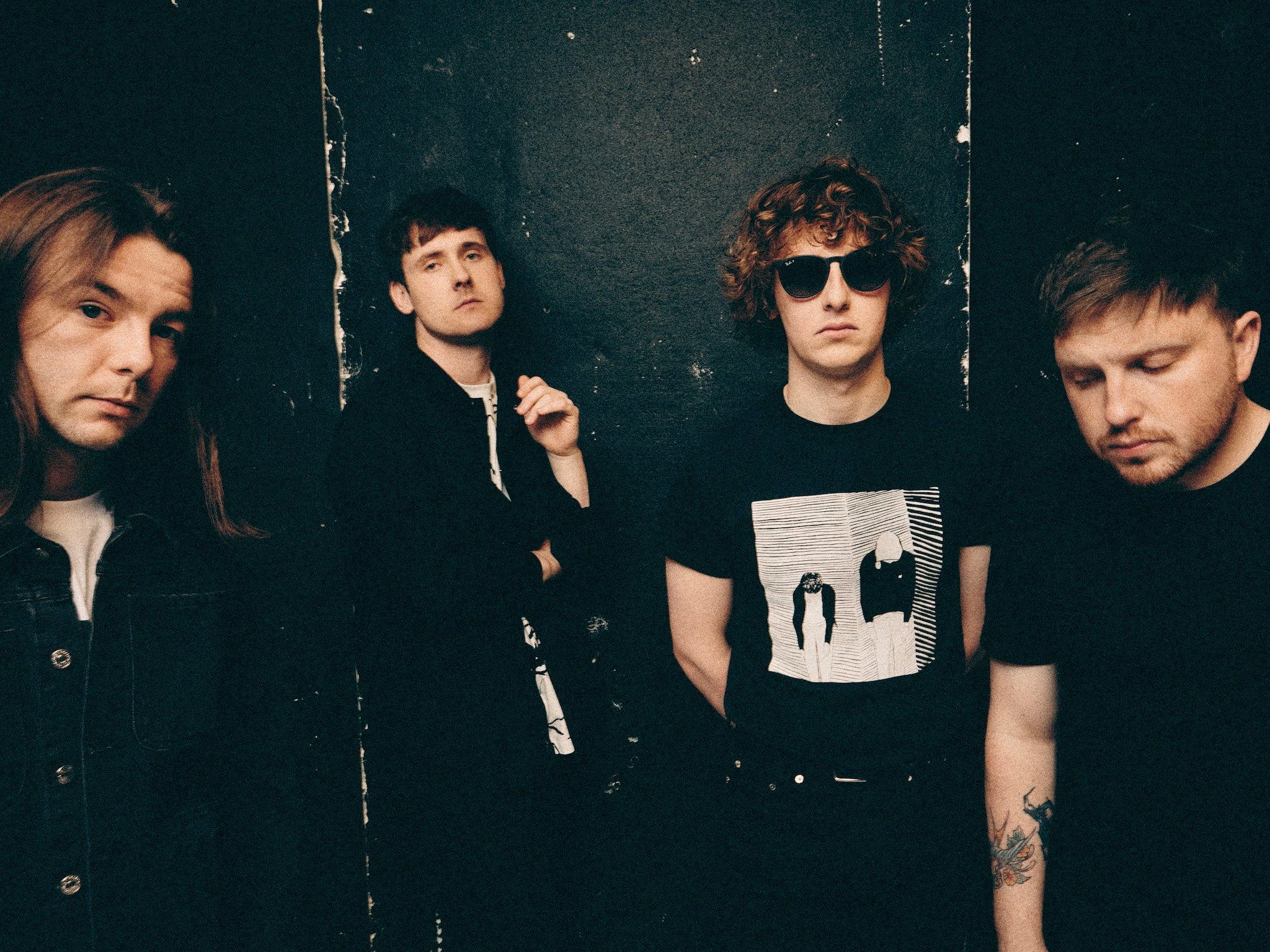
It was a hard couple of years, especially not knowing if you’d ever play a live show again, but in retrospect, I think we did a decent amount of bullet-dodging.
As I understand it, W.L. took around three years to record and contained material dating back to the band's early days. How did the process for this latest record differ?
Joe McGillveray: Well, it was just that, going into the first record, we were drawing off a lifetime’s worth of ideas. This time it was like a clean slate, a fresh palate. Having a back catalog to go through can be a blessing or a curse, and I think for us, anyway, it was good to be pushing forward with no pretense.
Why did these tracks come together so much more quickly?
Joe McGillveray: I think it was quite a conscious decision; we wanted to avoid some of the mistakes we made on the last one. We learned that your first instinct is usually the best one and that momentum and energy are essential to creativity. Any time you stop to question what you’re doing, it can all fall to bits, so with this, we were all about getting it down and fixing problems later. What I’ve found, though, is that parts of your own music can grow on you.
Sometimes you’ll make a note to go back and fix something, but by the time it comes to it, you’ve grown to love it. It’s better for the whole process and goes more with the whole “serve the song, not the ego” mentality we try to take. The old me would happily do 100 takes to try and achieve perfection. All that really happens, though, is that it takes everyone else out of the moment, people start thinking about dinner, and it hurts the music.
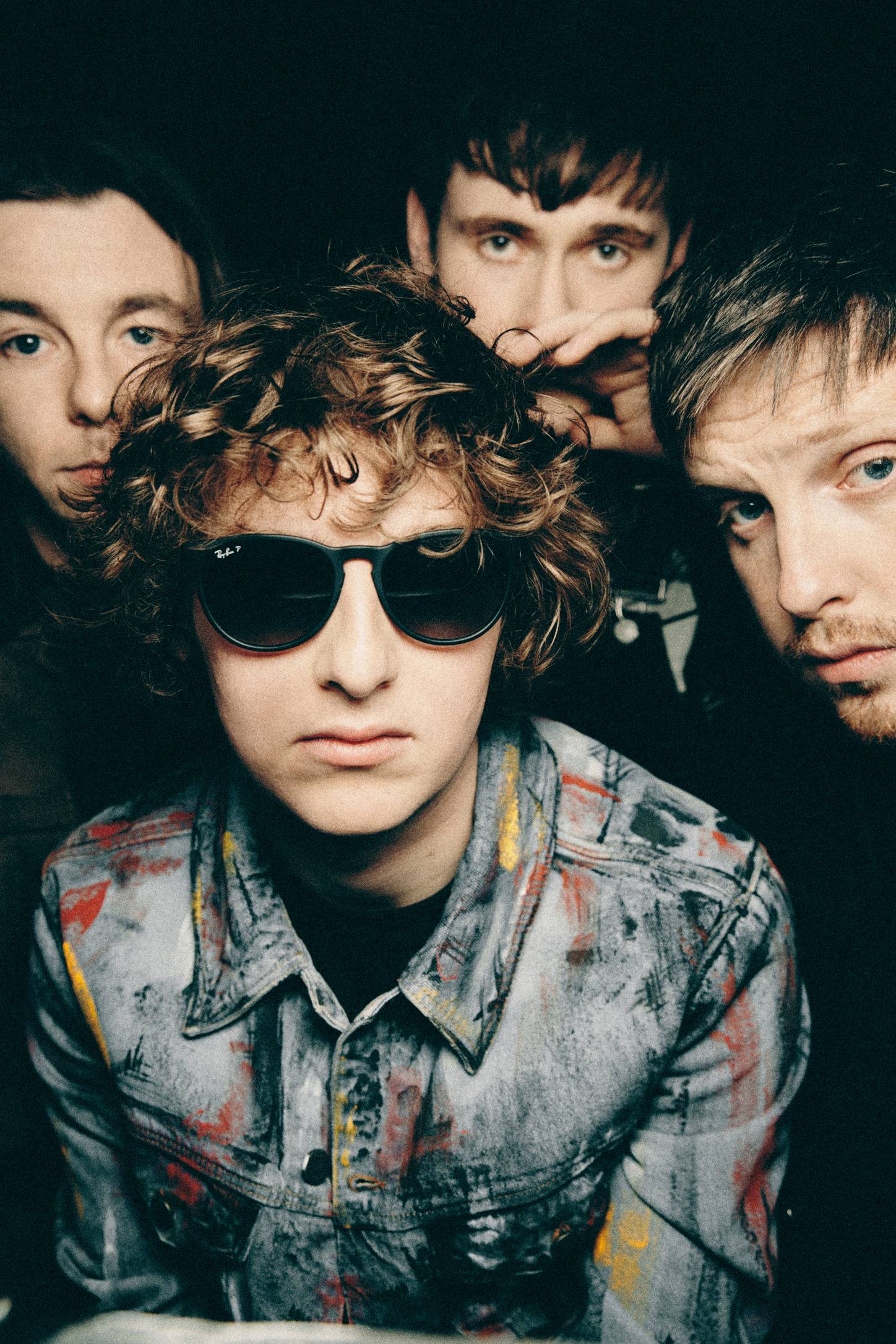
We learned that your first instinct is usually the best one, and that momentum and energy are essential to creativity. Any time you stop to question what you’re doing, it can all fall to bits, so with this, we were all about getting it down and fixing problems later.
Given the differing process and unstable conditions worldwide, how did that lend itself to the band's maturity and evolution?
Joe McGillveray: I think it definitely allowed for the writing to be more current. Before this album, I think our music was super personal to Jack and us specifically. Which I think makes sense, no one really wants to hear four 22-year-olds pontificate about how the world should work, but this time ’round, it felt like the things we were feeling, and thinking were reflected everywhere we looked.
Describe the new ground, sound, and aesthetics The Snuts are treading with this new record.
Joe McGillveray: We’re just trying to break new ground for ourselves, really; there’s a bit of gatekeeping in the world of rock ‘n’ roll about what is and what isn’t acceptable as an indie band in 2022, which has just always felt a bit dull for us. I once heard someone say that art was like a buffet; we pick up different bits and pieces, but in the end, no one has the same plate. I think the more dishes we have on the buffet table, the better.
Starting with the title track, what are the origins and meanings there?
Joe McGillveray: “Burn the Empire” was one of the first songs we recorded in the session; we had just been talking and talking about all the stuff that’s so obviously wrong in the world that people accept because that’s the way it is. Once Jack had written the phrase, it just seemed so powerful that it set the tone for the rest of the album. “The Empire” can mean a different thing to whoever’s listening. Whether it’s political, cultural, or personal, if it holds you back, burn it down.
“Zuckerpunch” is another favorite of mine. I wanted to hear your thoughts regarding how it's to be interpreted.
Joe McGillveray: “Zuckerpunch” is about the rise in predatory practices online and hypocritical corporate Demi Gods hiding behind a wall of false morality while simultaneously destroying the values in society. This song came out of nowhere; we were riding the momentum; the next thing I knew, we had a Wah on the floor and were asking permission to use a KRS-One sample.
The last one I wanted to touch on was “Cosmic Electronica.” Break that one down for me.
Joe McGillveray: With “Cosmic Electronica,” we just wanted to push ourselves; Callum and Nat had the bass part worked out, and they decided early on to use the synth rather than an actual bass, which I think just pushed the rest of us to a different place. I always think it’s funny when you start out in the morning with something people are a bit unsure of, but by the afternoon, everyone’s vibing to the point that there are ad-libs like, “I’m talking’ space police!”
What are five records that shaped your sound, and why?
Joe McGillveray: I’d start with Humbug by Arctic Monkeys. I love Arctic Monkeys, and I think this is really where they began to push the envelope. Then we have Alas, I Cannot Swim by Laura Marling. This was a big album for us when we were younger, just proper heart-on-your-sleeve songwriting. Next, I’d go with 22, A Million by Bon Iver. This album really helped open my eyes to production. I’d heard the term “the studio is an instrument” but hadn’t really comprehended it properly until I heard it.
And then, I have to include London Calling by The Clash. I think we drew a lot of inspiration from The Clash over the last few years, both in the music and the message. And maybe even the overalls. Lastly, I’d pick Sound of Silver by LCD Soundsystem. It’s just an album full of bangers from a great band that writes great songs.
Describe the feeling you get when you first take the stage. Has that changed over the years? Does the venue or crowd size affect that at all?
Joe McGillveray: That first few seconds on stage, waiting for the cue, it’s hard not to run away. The lizard bit of my brain sees that many people pointed at me and want to go hide under a nice rock or something. Once I get through the first song, it’s okay, but I’m definitely my worst critic, and when something goes wrong, it’s hard not to let it consume you.
In general, though, we’ve gotten better at dealing with these things as a band. No one in the crowd cares if you hit a wrong note, but it will be noticed if you spend the next song and a half scowling about it. On the other hand, if someone makes a mistake and laughs it off, it’s like a nice human moment that can actually add to the show.
Many bands come and go, but The Snuts seem poised for long-term success. What makes The Snuts different?
Joe McGillveray: All we can do is keep trying to improve and working with people that help us mature creatively. We make music for each other and for the people we care about, and that’s all we know how to do. I just feel lucky to be in the position we’re in and hope to be able to keep making music that people enjoy.
— —
:: stream/purchase Burn the Empire here ::
— — — —

Connect to The Snuts on
Facebook, Twitter, Instagram
Discover new music on Atwood Magazine
? © Edward Cooke
:: Stream The Snuts ::

